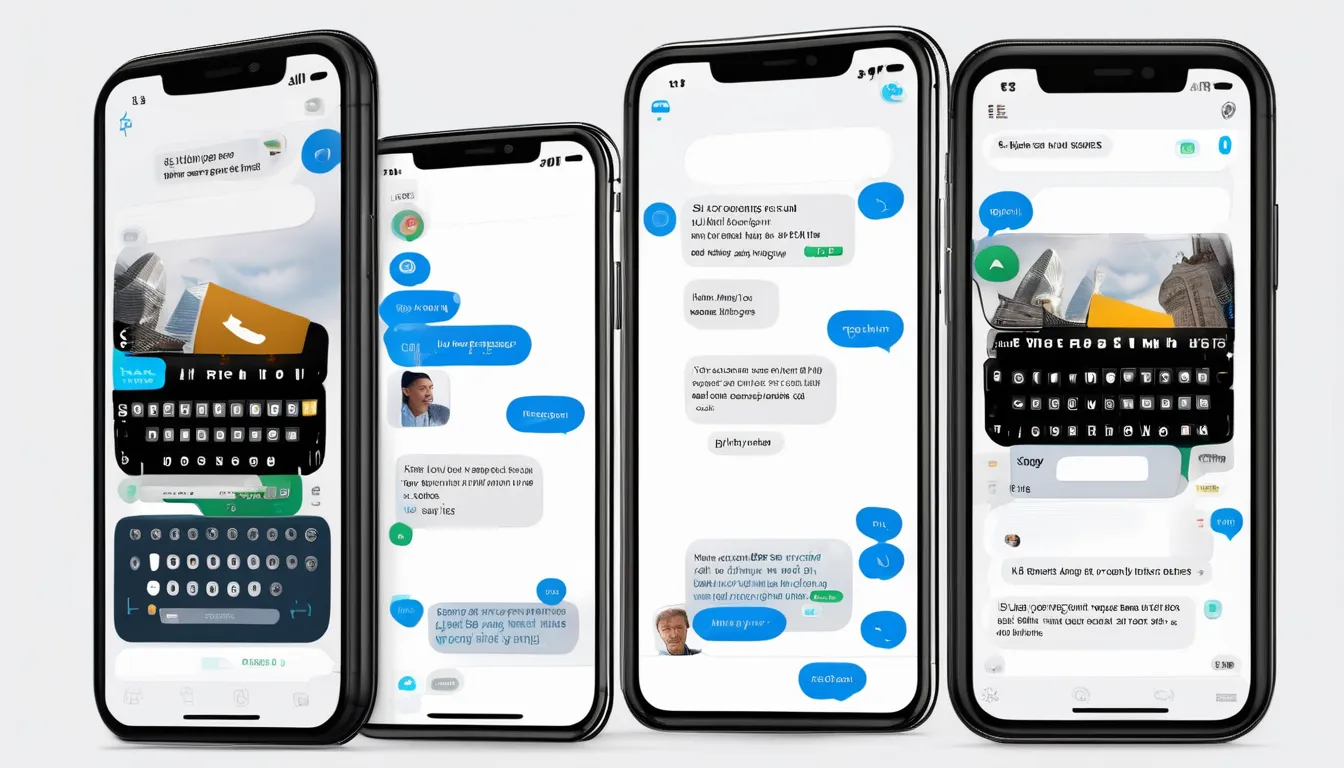The Future of Text AI and the Evolution of Computer Generated Writing

As you consider the future of text generation, it’s clear that AI is set to transform how we create and consume written content. With each advancement in machine learning, you’ll notice a blend of human creativity and AI efficiency that’s reshaping storytelling. Yet, this evolution brings forth pressing questions about authenticity and ethical implications. How will we navigate the balance between innovation and responsibility? The answers might just redefine what writing means in our increasingly digital world.
Understanding AI Text Generation
AI text generation is transforming the way we create and interact with written content. You’re probably noticing how algorithms can now produce coherent and contextually relevant text at an impressive speed. This technology uses vast amounts of data and advanced machine learning techniques to understand language patterns, enabling it to generate everything from articles to poetry.
When you engage with AI text generation, you’re tapping into a system that predicts what you might want to read next based on previous inputs. The process involves breaking down human language into manageable components, allowing the AI to mimic styles, tones, and even emotional nuances found in existing texts.
As you explore this technology, you’ll discover that it’s not just about generating text; it’s also about enhancing your writing process. AI can assist in brainstorming ideas, suggesting revisions, and even refining your style.
Understanding how AI works helps you leverage its capabilities effectively, making your writing more efficient and impactful. The future of writing is intertwined with AI, and grasping its mechanics will empower you to navigate this new landscape confidently.
Benefits of AI in Writing
The integration of AI into the writing process brings a wealth of benefits that can significantly enhance your productivity and creativity. With AI tools at your disposal, you can streamline the writing process, allowing you to focus more on your ideas and less on mundane tasks. For instance, AI can help you generate outlines, suggest topics, or even produce drafts based on your input. This means you can kickstart your projects faster than ever.
Moreover, AI-powered grammar and style checkers provide real-time feedback, helping you improve your writing skills over time. You’ll find that your documents become more polished and professional with these tools assisting you. Additionally, AI can analyze your writing patterns and suggest improvements, allowing you to develop a unique voice while adhering to best practices.
Collaboration also benefits from AI, as it can facilitate communication and coordination among team members. By automating repetitive tasks, you can reclaim valuable time to brainstorm, research, or refine your ideas.
Ultimately, embracing AI in writing not only boosts your efficiency but also opens up new avenues for creativity that you mightn’t have explored otherwise.
Challenges and Ethical Considerations
Navigating the challenges and ethical considerations surrounding AI in writing isn’t always straightforward. You might find yourself grappling with questions about authenticity and originality. When AI generates text, it often draws from existing content, raising concerns about plagiarism and copyright infringement.
It’s crucial to understand how to credit sources and ensure that your work remains ethically sound.
Another significant issue is bias in AI-generated content. Algorithms can inadvertently reinforce stereotypes or produce skewed perspectives based on the data they’re trained on. As a writer, you need to be vigilant about the potential receive text messages on pc your work to perpetuate these biases, consciously evaluating the material you produce.
Moreover, consider the impact of AI on employment within the writing industry. As AI tools become more prevalent, some fear they might diminish job opportunities for human writers. Balancing the benefits of efficiency with the need for human creativity and insight is vital.
Ultimately, you must navigate these challenges thoughtfully, ensuring that your use of AI enhances your writing while adhering to ethical standards. Being aware of these considerations not only strengthens your credibility but also fosters a responsible approach to the evolving landscape of writing.
The Role of Human Creativity
While grappling with the ethical implications of AI in writing, it’s important to recognize the irreplaceable role of human creativity. AI can generate text, but it lacks the emotional depth, cultural context, and personal experiences that you bring to your writing. Your unique perspective fuels storytelling, poetry, and other forms of expression, allowing you to connect with readers on a profound level.
To illustrate the differences between AI-generated content and human creativity, consider the following table:
| Aspect | AI-Generated Content | Human Creativity |
|---|---|---|
| Emotional Depth | Limited | Rich and nuanced |
| Cultural Context | Minimal | Deeply informed |
| Personal Experience | None | Unique and relatable |
The table highlights that while AI can assist in generating ideas or drafts, it can’t replicate the intricate layers of meaning that come from your lived experiences. Your creativity allows you to infuse authenticity into your work, making it resonate with readers. Embracing this synergy between AI and human creativity can lead to innovative writing possibilities, but ultimately, your voice remains essential.
Future Trends in AI Writing
As technology continues to evolve, you can expect AI writing tools to become increasingly sophisticated, enhancing not just efficiency but also creativity.
The future of AI writing will likely focus on personalization, allowing you to tailor content to specific audiences and preferences. Imagine tools that analyze reader behavior and adapt your writing style accordingly, making your content more engaging and relevant.
Moreover, AI will probably integrate seamlessly with other technologies, such as augmented reality and voice recognition, creating immersive storytelling experiences. You could easily convert written content into interactive formats, making your work more dynamic.
Collaboration between humans and AI will also be a key trend. Instead of replacing your creativity, AI will serve as an assistant, offering suggestions and insights that can refine your ideas. Think of it as brainstorming with a highly knowledgeable partner who can access vast amounts of information instantly.
Lastly, ethical considerations will become crucial, as you’ll need to ensure transparency and accountability in AI-generated content.
Conclusion
As AI continues to evolve, the landscape of text generation will transform, enhancing your writing experience. You’ll benefit from personalized content and innovative storytelling techniques, all while collaborating with AI to spark your creativity. However, it’s essential to stay mindful of ethical considerations and the importance of transparency. By balancing these advancements with human insight, you can ensure that your writing remains authentic and resonates with your audience, paving the way for a bright future in computer-generated writing.



